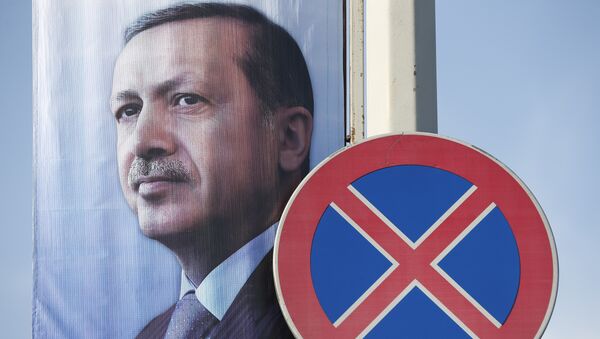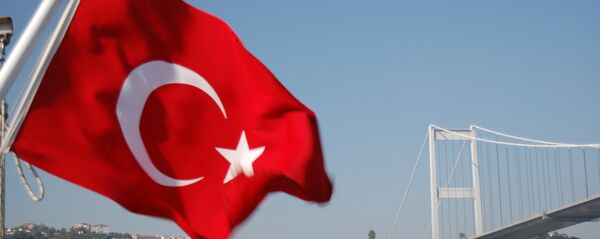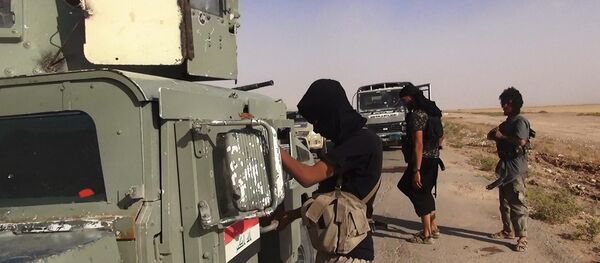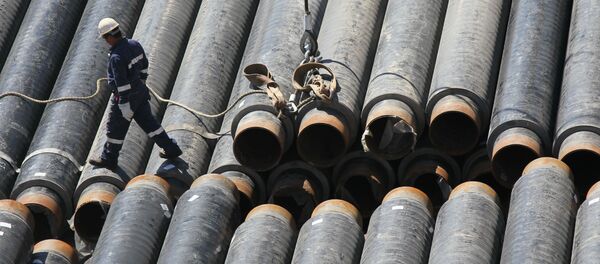On Thursday, Russia announced it would introduce a set of economic sanctions in response to an "act of aggression" after Turkey shot down a Russian Su-24 bomber in Syria.
Russian Prime Minister Dmitry Medvedev ordered the government to work out economic measures which may include the suspension of joint economic projects, restrictions in trade and financial operations, the revision of trade tariffs as well as restrictions in tourism, aerial and maritime communication.
Turkey is one of Russia’s biggest trade partners, thus economic sanctions will inevitably affect both the Turkish and Russian economies. Nevertheless, a representative of the Russian Ministry of Economic Development told RBK that it is premature to assess the effect of sanctions on Russia as there is no final list of sanctions yet.
The measures against Ankara may include the Akkuyu Nuclear Power Plant which is currently being built by Russia’s Rosatom Company in the southern province of Mersin. Some $3 billion has already been invested in the project, and its total cost is estimated $22 billion. Russia and Turkey signed the agreement to construct and operate Turkey’s first nuclear power plant at the Akkuyu site in 2010.
Russia’s Economic Development Minister Andrei Ulyukayev also said that the Turkish Stream gas pipeline would also fall under the sanctions.
However, no final decision on either project has been made so far.
Energy cooperation is the most significant field of cooperation between Russia and Turkey, according to HSBC analysts. In 2014, Russia’s gas-producing giant Gazprom exported 23.7 billion cubic meters of gas, which amounts to 5.3 percent of its overall output. Moreover, Turkey buys Russian-produced crude oil and coal.
HSBC noted that energy cooperation between Moscow and Ankara would not be abandoned as it is lucrative for both countries.
Prime Minister Medvedev also called to end talks with Turkey on the preferential regime in investments and services. The talks started in 2014, and two rounds have been held since. The third was expected to take place in January in 2016, but now the talks are suspended, RBK reported citing a representative of the Economic Development Ministry.
Finally, the sanctions are expected to take a toll on Turkish construction companies doing business in Russia, as Medvedev said. As for the end of 2013, Turkish construction firms had a portfolio of projects in Russia worth $5.7 billion. According to Russian Minister of Construction Industry Mikhail Men, the Russian market will not be seriously hit if Turkish developers leave, as Russian companies are ready to replace them.
If the Russian economy sustains losses in such industries as tourism, air transportation and trade the government will take steps to compensate them, Ulyukayev said.




